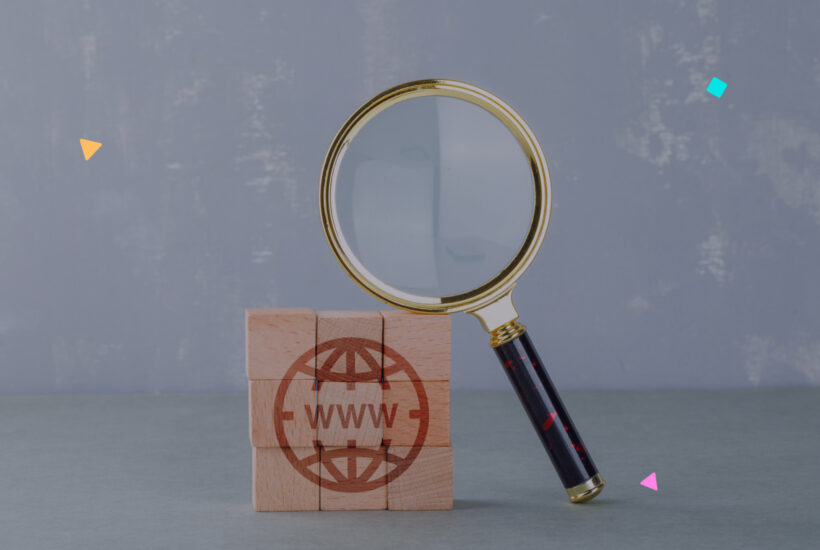Best practices for domain management

In the day-to-day running of a marketing agency, domain management is a crucial task. Whether it’s launching a new campaign for a client, securing a brand’s online presence or protecting brand names, knowing when a domain is available and how much time is left before it expires is critical. This knowledge not only helps to avoid legal and branding issues, but also ensures continued access to the website, a vital element of any digital marketing strategy. In this article, we’ll explore the most common challenges marketing agencies face with domains, from inadvertent expiration to acquiring and negotiating new domains, and offer practical strategies for overcoming these obstacles.
Tabla de contenidos
Domain Life Cycles
Understanding the different periods in the domain lifecycle is essential to effective domain management. These include the active registration period, the renewal grace period, the redemption period and finally the deletion period, each with its own characteristics and opportunities to recover the domain before it is permanently lost.
- Active Registration Period: This is the period during which the domain is registered and active. Most domains are registered for one year, although it is possible to register for longer periods. During this time, the owner has full control over the domain and its use.
- Renewal grace period: When a domain reaches its expiration date and has not been renewed, it enters the renewal grace period. This period varies depending on the registrar, but generally lasts between 30 and 45 days. During this time, the domain owner can renew the domain without incurring additional fees. It is crucial that marketing agencies monitor domains for renewal within this period to avoid problems.
- Redemption period: If the domain is not renewed during the grace period, it enters the redemption period, which usually lasts about 30 days. In this phase, the domain is inactive and the original owner can recover it, but usually must pay an additional fee for the restoration.
- Deletion Period: After the redemption period, the domain enters the deletion period, which lasts approximately 5 days. During this time, the domain cannot be renewed or restored. Once this period is over, the domain is released and can be re-registered by anyone.
Domain expiration: a permanent risk
One of the biggest challenges facing marketing agencies is domain expiration. Renewing a domain may seem like a trivial task, but when managing numerous domains for different clients, things can quickly become complicated.
Consequences of domain expiration:
- Loss of traffic and customers: If a domain expires, the corresponding web page is no longer accessible, resulting in an immediate loss of traffic and potential customers.
- Impact on SEO: The expiration of a domain can negatively affect search engine rankings, as Google and other search engines penalize sites that are unavailable.
- Risk of cybersquatting: Once a domain expires, it can be acquired by third parties, who can use it for malicious purposes or simply to resell it at an inflated price.
Solutions and prevention:
- Constant monitoring: Use domain management tools that send reminders and alerts about the approaching expiration date.
- Automatic renewals: Configure automatic domain renewal to avoid forgetfulness.
- Provider consolidation: Keep all domains with the same registrar to simplify management and minimize the risk of forgetting to renew a domain.
Tools for checking domain expiration:
- Domain Don’s Whois : Provides detailed information about a domain’s expiration date and the owner’s contact.
- DomainTools: Provides domain monitoring and alerts on upcoming expiration dates..
Buying new domains: a competitive market
Acquiring a new domain can be an arduous task, especially when the desired name is already registered. Marketing agencies must navigate a competitive market and often have to settle for suboptimal alternatives.
Challenges in domain purchasing:
- Availability: Many desired domains are already registered, forcing agencies to be creative or negotiate with current owners.
- Cost: Premium domains can be extremely expensive. The cost of acquiring a popular domain can significantly exceed a company’s budget.
- Alternative extensions: Opting for less common extensions (.net, .co, .io, etc.) may not be ideal from a branding and customer perception standpoint.
Buying Strategies:
- Creative search: Use domain name generation tools that suggest viable alternatives when the desired domain is not available.
- Negotiation: Contact desired domain owners directly and be prepared to negotiate. It is crucial to have a clear negotiation strategy and a defined budget.
- Use of marketplaces: Explore domain platforms and marketplaces where existing domains can be found and purchased at a variety of prices.
Tools for checking domain availability:
- GoDaddy: Allows you to search for available domains and offers alternative suggestions.
- Namecheap: Facilitates the search for available domains and provides pricing information.
- Don Domain: Another reliable option to search and register available domains.
Domain negotiation: art and strategy
Negotiating for an existing domain can be a complex and delicate task. Agencies must be strategic and well-informed to achieve beneficial deals.
Negotiation considerations:
- Domain valuation: Understand the real value of the domain based on its age, traffic, and relevance.
- Seller motivation: Determine if the current owner is really interested in selling and what is their minimum acceptable price.
- Negotiation tactics: Be patient and willing to make concessions. Sometimes the process can take time and it is important not to show too much interest at the outset so as not to inflate the price.
Conclusion
Domain management is a crucial task for marketing agencies that requires constant attention and a well-defined strategy. From avoiding accidental expiration to purchasing and negotiating new domains, each step brings its own challenges and requires a proactive approach. Implementing sound domain management practices not only protects clients’ online presence, but also ensures that marketing campaigns run smoothly, maximizing ROI and effectiveness in the digital marketplace.
In addition, it is important to consider other aspects of web management, such as performance optimization. Applying optimization strategies can significantly improve user experience and site efficiency. For more information on how to optimize your website performance, you can visit our guide on web performance optimization and perfmatters. Implementing these practices can make a big difference in the success of your campaigns.
Frequently Asked Questions (FAQs)
1. How long does it take to register a domain name?
Domain registration generally lasts one year, although it is possible to register domains for longer periods, such as two, five or even ten years, depending on the registrar.
2. What happens if I forget to renew my domain name?
If you forget to renew your domain name, it will enter the renewal grace period, where you can still renew it without additional fees. If you do not renew it during this period, the domain enters the redemption period, where you can recover it by paying an additional fee. Finally, if it is not renewed, the domain enters the deletion period and is then released for anyone to register.
3. How can I protect my domain from cybersquatting?
To protect your domain from cybersquatting:
- Renew your domain on a timely basis: Set up automatic renewal to avoid expiration.
- Register domain variants: Consider registering different variations and extensions of your main domain name.
- Monitor your domain: Use tools that alert you to any suspicious activity related to your domain.


